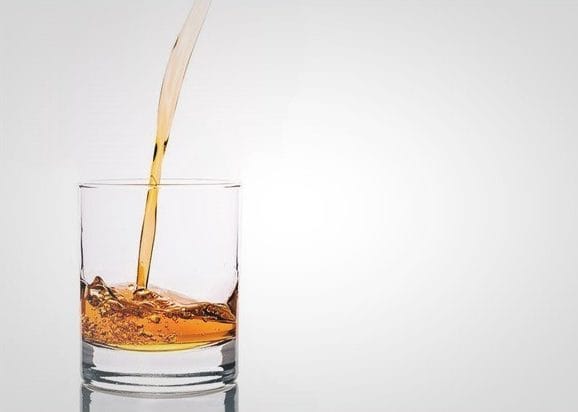Why Does Alcohol Turn People Into Jerks? Zak and His Lab Offer An Explanation

A new study published by Paul J. Zak and his research team in PLOS ONE looks at what happens when you mix drinks, money, and group dynamics.
***
Are you happy or mean when you drink? Do you act more generous or more selfish when you’re drinking with colleagues? Do they become dear friends or frenemies?
Neuroeconomics research at CGU has examined whether alcohol makes people nasty or nice by measuring its effect on brain responses, mood, and social behaviors.
Professor Paul Zak and his co-authors have published new research in the Public Library of Science ONE (PLOS ONE), one of the world’s leading peer-reviewed science journals, reporting on an experiment examining the effects of moderate doses of one of the most popular drugs: alcohol.
Zak and his co-authors tested the “nasty or nice” idea in an article whose title doesn’t hide their surprising discovery: “Alcohol Unleashes Homo Economicus By Inhibiting Cooperation.”
The experiment was run at CGU’s Center for Neuroeconomics Studies, which Zak directs.
Contributors versus Free-riders
Alcohol is disinhibiting and should cause people to tend towards being generous and sharing resources with others, Zak said, but “our data showed just the opposite: acute moderate alcohol consumption increased physiologic stress and reduced cooperation in a share-the-money task. “
Zak and his team designed an experiment that would investigate decision-making in a social situation involving alcohol consumption. 128 participants (male and female) were divided into groups and served either alcoholic beverages or a placebo. Blood draws assessed how drinking influenced stress hormones; blood alcohol content was repeatedly measured.
After beverage consumption, participants were asked to make decisions in an activity designed as a version of the Public Goods Game (PGG), which quantifies how cooperative or selfish people are when making decisions in private. In PGGs, selfish individuals are known as free riders because they don’t contribute but still benefit thanks to other contributors willing to share in support of the group.
The project used a bank of partitioned computers, and participants were taken through a series of exercises in which each one was given $10 and given an opportunity (but not obligated) to contribute a portion of their money to a common pool. They were served alcoholic beverages (or placebos) prior to each group activity; researchers used survey questionnaires and measured blood alcohol levels along the way.
According to the paper just published in PLOS ONE, the group who consumed alcohol contributed a shocking 32% less to a common, shared pool of resources (in this case, a pot of money) than the placebo group. The paper identifies the reason for this as increased stress among alcohol drinkers and a marked reduction in their moods. Alcohol, in this case, created unhappy, stressed individuals who, like the mythical homo economicus discussed in Economics 101 courses, benefited only themselves. The more people drank, in fact, the more selfish they became.
That’s a significant difference, and considering the ubiquity of alcohol—like coffee—in our daily human interactions, Zak said it’s important to closely examine its influence on brain mechanisms and understand its potential influence on group outcomes.
What this project suggests is that the old cliché that alcohol consumption causes us to drop our guard and become more trusting isn’t necessarily true and, in certain group situations, can actually drive in the opposite direction.

Debut in a Scholarly Publication
Along with Zak’s collaborator and co-author Ed Stringham from Trinity College, the project and paper also feature Kylene Hayes (MA, Positive Health Psychology, ’20) and Positive Organizational Psychology & Evaluation master’s student Elizabeth Paulson, whom Zak says played crucial parts in making this study possible.
Zak says they both joined his lab out of pure interest in neuroscience.
“They were both go-getters and wanted to take on a hard project. This project collected a lot of data that had to be analyzed,” said Zak. “They contributed mightily to this project and earned their co-authorships with hard work and dedication. I’m extremely proud to be part of their initiation into professional scholarship.”
- Learn more about the Center for Neuroeconomics Studies at CGU
- Contact here for more information about Paul Zak or for an interview
- Read Alcohol Unleashes Homo Economicus By Inhibiting Cooperation in PLOS ONE here